




 |
 |
 |
 |
 |

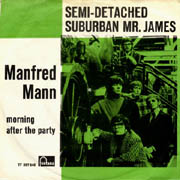 |
7" (1966) ****/TTTT½ Semi-Detached Suburban Mr. James Morning After the Party |
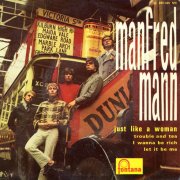 |
Just Like a Woman (1966, 10.23) ***/TJust Like a WomanI Wanna Be Rich Trouble and Tea Let it Be Me |
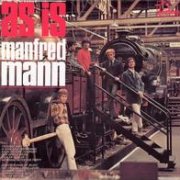 |
As is (1966, 31.10/47.28) ***½/TTT (TTT½) |
||
| Trouble and Tea Now and Then Thing Each Other's Company Box Office Draw Dealer Dealer Morning After the Party Another Kind of Music |
As Long as I Have Lovin' Autumn Leaves Superstitious Guy You're My Girl Just Like a Woman [CD adds: Pretty Flamingo |
You're Standing By You Gave Me Somebody to Love Poison Ivy I Wanna Be Rich Semi-Detached Suburban Mr. James] |
|
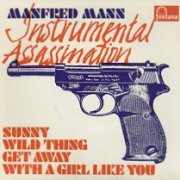 |
Instrumental Assassination (1966, 12.49) ***/TTWild ThingSunny With a Girl Like You Getaway |
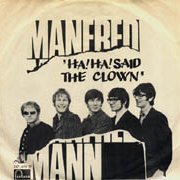 |
7" (1967) ***½/TTTT Ha! Ha! Said the Clown Feeling So Good |
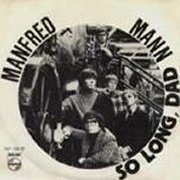 |
7" (1967) ***/TT So Long, Dad Funniest Gig |
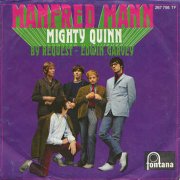 |
7" (1968) **½/T Mighty Quinn By Request - Edwin Garvey |
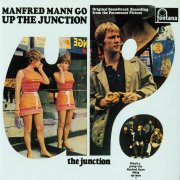 |
Up the Junction (1968, 29.26/55.12) ***/0 (T½) |
||
| Up the Junction Sing Songs of Love Walking Round Up the Junction Love Theme Up the Junction Just for Me Love Theme |
Sheila's Dance Belgravia Wailing Horn I Need Your Love Up the Junction [CD adds: Eastern Street Mohair Sam |
Lovebird Brown & Porter's (Meat Exporters) I Love You I Think it's Gonna Rain Today Budgie Sitting Alone in the Sunshine Please Mrs. Henry] |
|
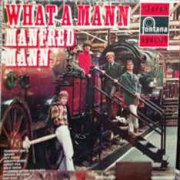 |
What a Mann (1968, 31.00/62.06) ***/T (TTT) |
||
| Funniest Gig Sunny Get Away Mighty Quinn Sweet Pea Wild Thing Morning After the Party Feeling So Good |
One Way So Long, Dad [CD adds: I Wanna Be Rich Let it Be Me Semi-Detached Suburban Mr. James Miss JD All I Wanna Do |
Last Train to Clarksville Sunshine Superman By Request - Edwin Garvey Mighty Quinn My Name is Jack Harry the One-Man Band (edited)] |
|
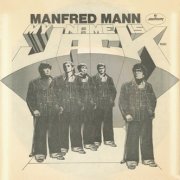 |
7" (1968) ***/T My Name is Jack There is a Man |
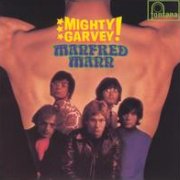 |
Mighty Garvey! (1968, 38.55) ***/TTTT |
|
| Happy Families No Better, No Worse Every Day Another Hair Turns Grey Country Dancing It's So Easy Falling Happy Families The Mighty Quinn Big Betty |
The Vicar's Daughter Each and Every Day Cubist Town Ha Ha Said the Clown Harry the One Man Band Happy Families |
|
Current availability:
Mellotrons used:
Confusingly, Manfred Mann had his band named after him, making for a slight filing problem; I've opted for surname, although some discographies file under 'Manfred' (they were popularly known as 'The Manfreds', also the name of the current Mann-less group containing original members). For some reason, they're one of the less-fondly remembered '60s groups, although they had stacks of hits; maybe a lack of psychedelic credibility has scuppered them in the long-term. Who knows? Anyway, they were excellent at what they did, which was clever, literate, mainstream pop, light years away from Mann's later adventures with Chapter Three and the Earth Band.
Mann presumably bought his MkII Mellotron in 1966, using it straight away on the As is album and Semi-Detached Suburban Mr. James single. The album features it on several tracks, with a major string part on Now And Then Thing, then brass, strings and mandolins on Each Other's Company; our Man(fred) clearly wasn't going to be constrained by the 'standard' sounds; after all, as one of the first users in the pop field, there were no 'standard' sounds at the time. More brass on the witty Another Kind Of Music (was the lyric aimed at anyone specific, I wonder?), plus what may be some spitty Mellotron organ. Straightforward string parts on the bluesy As Long As I Have Lovin' and jazzy instrumental Autumn Leaves finish things off nicely, although it's possible there are other Mellotronic snatches here and there. Potential flutes and Spanish guitar on a couple of tracks, although they're doubtful, while the vibes on several tracks have to be real. Overall, a really very good record, from the dawn of the era of albums that weren't just collections of hit singles and filler.
As possibly the first Mellotron hit, Semi-Detached Suburban Mr. James (apparently released the same day as As is) deserves a paragraph to itself, I think. It was their eleventh hit, an excellent song with a spectacularly bitter lyric about an ex-girlfriend, of the kind nobody would even think to write these days in a mainstream pop song. On top of its general excellence, Mann goes for complete Mellotron overkill. It opens with a flute melody, also featuring brass and a brief unaccompanied bass accordion part; there aren't even any other keyboards on the track, although he usually played organ and piano. A definite case of 'new toy syndrome', I think, but who's arguing? Although Just Like A Woman was a UK single, it was turned into an EP for French release, adding a flute line on Let It Be Me. The Instrumental Assassination EP appeared that December, proving (as if it were in doubt) that the band had a sense of humour, featuring their surreal cover of The Troggs' recent smash, Wild Thing, including queasy pitchbent Mellotron saxes, clearly royally taking the piss out of the original. The dying notes of the song feature a rarely-heard MkII rhythm tape, one of the big band codas, complete with American Chamberlin-stealer and Mellotron hero Bill Fransen's ecstatic "Yeah!", also used on Lol Coxhill's Ear of Beholder.
1967 brought another Manfreds Mellotron track, the flop single So Long, Dad, which despite its honky-tonk piano, mixes harpsichord and Mellotron flutes in the chorus. The band also soundtracked classic 'kitchen sink drama' Up the Junction, referenced so expertly over a decade later by Squeeze, of course. Possibly due to the demand's of the film's producers, the mere half-hour album is entirely Mellotron-free and, given that it shoehorns in no fewer than four versions of the title track and two of the Love Theme, that's all of nine actually different pieces, making this a mildly intriguing, but overall inessential Mann LP, as I don't get the impression they exactly put their best material aside for it. The 2004 CD version adds a slew of bonuses, most of them better than the actual album. Mellotron on three, with accordion on the excellent Brown & Porter's (Meat Exporters), flutes on I Think It's Gonna Rain Today, alongside a real one and flutes and accordions on the mock-tragic Budgie. Incidentally, for completists, a June '68 single, My Name Is Jack, has a brief burst of Mellotron strings on the b-side, There Is A Man.
The What a Mann compilation usefully mopped up a bunch of single/EP tracks, a recent Japanese CD issue adding more of the same, making for an almost-essential purchase for Manfred completists. Several Mellotron tracks, including Wild Thing and So Long, Dad on the original vinyl, adding the previously-mentioned Let It Be Me, Semi-Detached Suburban Mr. James and By Request - Edwin Garvey and the otherwise seemingly-unavailable All I Wanna Do, complete with chordal Mellotron strings.
The band released their final album, Mighty Garvey!, a couple of weeks after My Name Is Jack, source of their massive hit version of Dylan's The Mighty Quinn (a.k.a. Quinn The Eskimo), which you'll either like or you won't. I don't, although its vaguely amusing flip, By Request - Edwin Garvey, features a brief burst of Mellotron strings and tenor sax throughout. I've no idea what's going on with the three different versions of Happy Families, each of which introduced 'Ed Garvey' in different musical situations, the best of which is the second, supper-club version, alongside the 'Ruddy Bitch Trio'. Ouch. The bulk of the album, however, is a bit of a Mellotron-fest, with a major accordion part on No Better, No Worse, Manfred really going for it on the flutes on Everyday Another Hair Turns Grey, alongside harpsichord and more accordions and, er, other stuff on Country Dancing. Trombones (?) and flutes on It's So Easy Falling and possibly bass accordion again on Big Betty, which appears to be a take on Black Betty, torn apart and reconstituted to great effect by US band Ram Jam a decade later. Strings on The Vicar's Daughter, fairly full-on brass (trombones?) on Each And Every Day, brass on Cubist Town, then that year's other major hit, Ha! Ha! Said The Clown. Not quite the equal of Semi-Detached..., but decent enough and still well worth hearing, it also opens with a polyphonic flute part, plus more of those accordions, complete with a superb pitchbent chord utilised a couple of times. While I don't think there's anything on Harry The One Man Band, the final, closing version of Happy Families (the Irish showband one) has a major string part, making this the Manfred Mann album to get on the Mellotron front. It's probably not as good musically as As is, but if the Mellotron's your thing... (And how could it not be?)
Anyway, the two big hits are essential Mellotron listening, especially for anyone wishing to hear some early use of the machine. What's interesting about both tracks is how 'raw' it sounds, volumes differing between notes and a really 'cranky' feel to it. I suspect it was recorded by mic'ing up the internal speakers rather than DIing it, but, despite being brand new, it sounds like it could've done with a good set-up. I've no idea what Mann did with it eventually; he bought an M400 for Earth Band use, but maybe his MkII's still sitting in storage somewhere?
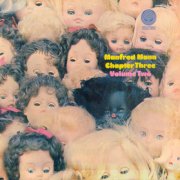 |
Volume Two (1970, 45.49) ***/½Lady AceI Ain't Laughing Poor Sad Sue Jump Before You Think It's Good to Be Alive Happy Being Me Virginia |
Current availability:
Mellotron used:
Manfred Mann Chapter Three was Mann's first 'serious' band, between his pop group of the same name and his Earth Band, seemingly an attempt to fuse rock and jazz, in a manner vaguely akin to, say, Colosseum. How well it worked is down to the listener; it doesn't especially grab me, but I've never been big on fusion, assuming that's an appropriate term for this music. Their second and last album, Volume Two, is a mixture of early progressive and jazz-rock involving Latin and African percussion, amongst other styles, working better as a historical record than as a listening experience, at least to my ears. It has its moments (notably opener Lady Ace) and its horrors (the grotesquely lengthy Happy Being Me), but lacks an overall focus, not to mention melody. Think: 'experiment that didn't really work' and you're probably not too far off the mark.
Mann's MkII Mellotron on one track, with a brief string part on It's Good To Be Alive that doesn't especially enhance the track, although it's preferable to the squawking sax that maims much of the album. This isn't entirely awful, by any means, but could have done with a little editing and a lot less brass, although I'm sure I'm heavily missing the point in saying so. Hardly any Mellotron, either, so probably not worth it for most of you.
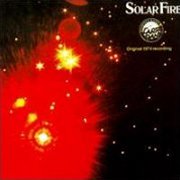 |
Solar Fire (1973, 37.10) ***½/TTFather of Day, Father of NightIn the Beginning, Darkness Pluto the Dog Solar Fire Saturn, Lord of the Ring/Mercury, the Winged Messenger Earth, the Circle Part 2 Earth, the Circle Part 1 |
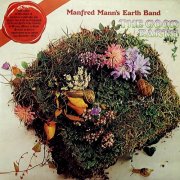 |
The Good Earth (1974, 38.12) ****/TT½Give Me the Good EarthLaunching Place I'll Be Gone Earth Hymn Sky High Be Not Too Hard Earth Hymn Part 2 |
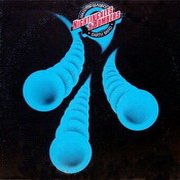 |
Nightingales & Bombers (1975, 38.00) ***½/TSpirits in the NightCountdown Time is Right Crossfade Visionary Mountains Nightingales & Bombers Fat Nelly As Above So Below (live) |
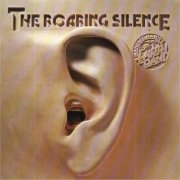 |
The Roaring Silence (1976, 39.55) ***½/TTTBlinded By the LightSinging the Dolphin Through Waiter, There's a Yawn in My Ear The Road to Babylon This Side of Paradise Starbird Questions |
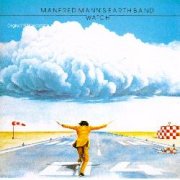 |
Watch (1978, 39.27) ***½/TCirclesDrowning on Dry Land/Fish Soup Chicago Institute California Davy's on the Road Again Martha's Madman Mighty Quinn |
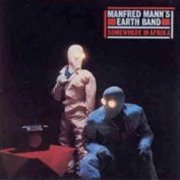 |
Somewhere in Afrika (1982, 37.35) ***/T |
|
| Tribal Statistics Eyes of Nostradamus Third World Service Demolition Man Brothers and Sisters of Azania Africa Suite Brothers and Sisters of Africa To Bantustan? |
Koze Kobenini? (How Long Must We Wait?) Lalela Redemption Song (No Kwazulu) Somewhere in Africa |
|
Current availability:
Mellotrons used:
By the time South African-born Manfred Mann formed his Earth Band in 1972, he'd already had a (relatively) long and honourable career with his self-titled band in the '60s (above), not to mention the jazz-rock Chapter Three around 1969/70. The first two Earth Band albums are pretty ropey, to be honest; substandard West-Coast fare, with too many Dylan covers (again), but, by their fourth effort, Solar Fire, they'd improved considerably. Ironically, it opens with a Dylan cover, Father Of Day, Father Of Night, but they made the song their own, turning it into a prog epic of considerable proportions, complete with excellent Mellotron strings, although Mann is credited with simply 'organ and synthesizer' on the sleeve. In fact, nowhere on any of these albums is the Mellotron mentioned; was he ashamed of it or something? To be honest, much of Solar Fire is rather plodding mid-'70s rock, but the good bits are great, particularly the Saturn/Mercury section. Nice strings on Earth, The Circle Part 1 (confusingly following Part 2), but two Mellotron tracks don't really add up to a Mellotron album in my book. Still, a good record, worth hearing.
The Good Earth is slightly spoilt by the rather unnecessary gimmick of enabling the purchaser to lay claim to 'one square foot of the earth situated at Llanerchyrfa in the County of Brecon, Wales', as long as they did so before the end of 1975, which leaves me slightly high and dry, not buying my (unclaimed) copy of the album until the early '90s. I feel cheated. Anyway, the album's style remains unchanged from its predecessor, the best tracks probably being Earth Hymn parts 1 and 2. Three Mellotron tracks this time; the two just mentioned and opener Give Me The Good Earth, with fair amounts of strings and especially, choir. Nightingales & Bombers features Mann's first use of a Springsteen song in Spirits In The Night, with driving (real) cellos and a tune to die for. Unfortunately, the rest of the album rather pales in comparison, although it's as good as Solar Fire. Very little Mellotron this time round, chiefly phased strings in Countdown, although I think I can hear more of the same and maybe choir, well back in the mix on Visionary Mountains, although the jury's still out on that one. The live version of As Above So Below that closes the album segues into an ornithologist's wartime recording of nightingales, accidentally juxtaposed with bombers flying overhead; top marks for locating such a strangely affecting recording and making it so widely available.
The Roaring Silence introduced the world at large to another Springsteen song, the superb Blinded By The Light, my personal introduction to the Earth Band and a live staple of the band to this day. The MiniMoog glide under the "Calliope crashed to the ground" line, sliding up to that modulated note... The rest of the album (again) doesn't quite live up to its opening track, but there's some decent material contained within, particularly the (presumably) cover art-inspired Waiter, There's A Yawn In My Ear and the excellent The Road To Babylon. Mellotron on three tracks this time: passable string part on Singing The Dolphin Through, choir on closing ballad Questions and excellent choir work on The Road To Babylon. Incidentally, isn't that a classical steal I hear on Starbird? I can't nail it down, but I suspect Mussorgsky. '78's Watch, predictably, began the move away from progressive stylings to unadulterated mainstream rock, although it's decent enough. I always knew that the Earth Band's version of Manfred's late-'60s hit, Dylan's The Mighty Quinn, was a live recording, but I was surprised to find out that the album's hit, Davy's On The Road Again was, too. Turns out the single was a studio cut, apparently added to the recent CD version. Mere droplets of Mellotron this time round, with background choirs on Drowning On Dry Land/Fish Soup, also the album's most progressive moment, but certainly not worth it on those grounds.
The Mellotron had been seemingly retired by Angel Station and Chance, although Mann had his machine serviced in the early '80s, turning up on one track on their '82 concept opus, Somewhere in Afrika. To call it a 'concept album' is probably to do it something of a disservice, to be honest; it's actually Mann revisiting his South African roots and making an album celebrating the country's multiculturalism, while simultaneously getting in several sharp digs against the prevailing apartheid regime, beating the tedious Paul Simon to the post by several years. The music is a mixture of early-'80s pop-rock (not good), with African chanting, pre-'world music', although I feel the experiment may've been more successful if the Western music had been better. Anyway, a brave attempt, with covers of Sting, Bob Marley, Al Stewart etc. There's a Mellotron string part on opener Tribal Statistics, but apart from the unidentifiable strings on Marley's Redemption Song, that appears to be it.
2005 brought a four-CD set, Odds & Sods: Mis-takes & Out-takes, with rumoured Mellotron, but the only obvious use is on the same version of Singing The Dolphin Through as on The Roaring Silence, although the set's worth the effort for dedicated fans, collating several hard-to-find tracks, adding a chunk of unreleased stuff to the band's catalogue. The Earth Band have carried on in one form or another to this day, although albums are few and far between. Mann almost certainly never used his M400 live, which is a shame, although, last I saw, he was still using his MiniMoog, or at least, routing a more reliable (heresy!) modern 'pseudo-analogue' machine through its filter.
Tracing live material from the original band seems to be an exercise in futility; anyway, whether or not Mann actually used his MkII live can only be a matter for conjecture. I don't even know if Chapter Three played live, while it seems that Mann only ever used a Hammond and MiniMoog with the Earth Band, or at least, up until the advent of polysynths. As a result, it seems highly doubtful that we're going to hear any live Manfred Mellotron at any time in the future, although there may be some '60s studio outtakes.